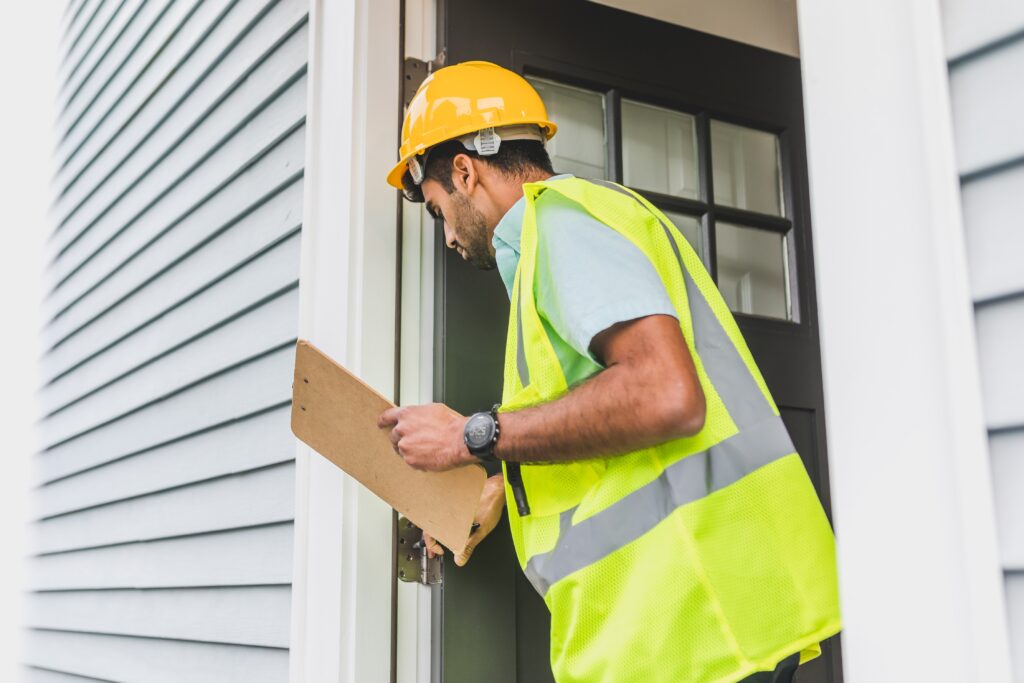Buying a brand-new home can feel like a dream, that fresh paint smell, immaculate surfaces and the chance to be the first residents. However, new-build properties often hide a range of unexpected costs beyond the advertised price.
These hidden expenses can put a serious dent in your budgeting if you’re not prepared. With that in mind, this guide pulls back the curtain on all the additional costs to factor in when purchasing a new-build home.
The premium price tag
One of the biggest hidden costs when buying a new-build is the premium pricing compared to existing housing stock. Developers routinely market their new homes at prices up to 10% higher than similar, aged properties in the same area.
This premium pricing stems from being able to offer a completely untouched living space that no one has inhabited before. Buyers are essentially paying a markup for that fresh, pristine feeling of being the first owners.
This premium, however, can be a double-edged sword. The higher sale price provides less wiggle room if property values dip, potentially leaving you in negative equity sooner if the market cools off. Your shiny new home could quickly be worth less than you paid.
Additionally, new-build homes tend to have higher asking prices from day one. So if you end up reselling just a couple of years later before prices have risen significantly, that initial premium becomes a sunk cost that eats into your property’s appreciated value.
While the premium pricing is marketed as covering the cost of brand new construction and giving buyers a ‘fresh start’, so to speak, it’s essentially a markup that only benefits the developer’s profits. Buyers need to decide whether those perceived benefits justify the premium pricing.
Upfront reservation and admin fees
Before you can even think about moving into that newly-built property, developers often require upfront payments just to reserve your desired property unit and start the purchase process. These admin fees can include:
Reservation fee
Usually between £500 and £2,000, this is a deposit to formally reserve your chosen plot and take it off the market while legal work commences. Crucially, it’s non-refundable even if you later can’t proceed with the purchase.
Conveyancing fees
The legal transferring of property ownership comes with conveyancing fees that can reach £500 to £1,500 depending on the firm used. Developers may insist you use a specific conveyancer, limiting your options further.
Mortgage fees
Along with the mortgage itself, there are upfront lender fees like arrangement costs, valuations and booking fees reaching £1,000-plus.
While these types of admin costs aren’t necessarily unique to new-builds, they can add considerable upfront expenses you’ll need cash on hand for, beyond your mortgage deposit. Buyers need to be prepared for these mandatory fees before even getting the keys.
The Stamp duty sting
Depending on the new-build home’s final price, and whether you are a first-time buyer, Stamp Duty Land Tax (SDLT) can add a significant extra cost that buyers need to factor in.
First-Time Buyer Relief:
In England and Northern Ireland, first-time buyers currently benefit from relief on stamp duty:
- No SDLT is charged on properties up to £425,000.
- For properties priced between £425,001 and £625,000, you’ll pay 5% SDLT on the portion of the price above £425,000.
- If the property price is over £625,000, first-time buyer relief does not apply, and standard SDLT rates are charged.
Changes Post-April 2025:
From 1 April 2025, the thresholds for first-time buyer relief will change:
- No SDLT will be charged on properties up to £300,000.
- For properties priced between £300,001 and £500,000, you’ll pay 5% SDLT on the portion above £300,000.
- If the property price exceeds £500,000, first-time buyer relief will not apply what so ever, and standard SDLT rates will be charged.
Standard SDLT Rates:
For those not eligible for first-time buyer relief (such as previous homeowners or properties above the relief cap), the following rates apply:
- No SDLT on properties up to £250,000 (dropping to £125,000 post-April 2025).
- 2% SDLT on the portion between £125,001 and £250,000 (effective April 2025).
- 5% SDLT on the portion between £250,001 and £925,000.
- 10% SDLT on the portion between £925,001 and £1.5 million.
- 12% SDLT on the portion above £1.5 million.
The Impact of New-Build Prices:
While SDLT applies to all property purchases, new-builds often come with premium prices set by developers. These higher costs can lead to eye-watering stamp duty bills, particularly if the property price exceeds thresholds for relief or falls into higher tax bands.
It’s an expense many buyers overlook when captivated by the sparkle of a brand-new home, but understanding SDLT and factoring it into your budget early is essential to avoid surprises.
Leasehold costs and fees
One of the most common yet complicated hidden costs of new-build homes stems from the prevalence of leasehold tenures vs freehold ownership. In simple terms:
Freehold is when you own the property and land it sits on permanently. On the other hand, leasehold is when you own the home itself, but not the land, paying fees to a freeholder
With leasehold, you’ll be subject to two perpetual fees: ground rent and service charges. Ground rent refers to the annual ‘rent’ paid to the freeholder for the leased land, which can start quite low but increase substantially over time with periodic reviews, potentially costing thousands.
Then you have service charges to cover maintenance of common areas, buildings insurance, staff wages for the development and more. Services charges run annually and vary by development size and the number of amenities but £2,000 to £3,000 is quite typical for apartments.
Because many new-build apartments are leaseholds, buyers may find themselves locked into these additional ground rent and service charges that can add £250-plus monthly to ownership costs over the freehold route. Therefore, it’s important to inspect leasehold details during the sales process.
Aside from these perpetual fees, leaseholds also face other costs:
- Admin fees. Charged by freeholders for providing documents, written permissions, etc.
- Lease extensions. When leases dip below 80 years, costly extensions or renewals are required to maintain value.
- Enfranchisement: The ability for leaseholders to buy the freehold can involve major valuation and legal costs.
While leasehold has been reformed in 2024, to mandate more lengthy 990 year leases on new properties, and by making it potentially cheaper to extend pre-reform leases, there are still some key details relating to the specific costs to leaseholders, still being worked out by the government, which need to be done before the law can be fully enforced.
Snagging and defect repairs
The idea of a pristine new-build home doesn’t always match reality. Construction defects and ‘snagging’ issues are unfortunately quite common with new developments. Even brand new homes may have:
- Cracks in plaster and drywall
- Sticking or misaligned doors and windows
- Faulty fittings and fixtures
- Roof and gutter defects
- Poor brickwork or rendering
- Uneven flooring and more
While major developers have responsibilities to fix major snagging issues during standard defects liability periods (usually around two years), the repair process can be slow and involve temporary reductions in your enjoyment of the new home.
More concerning are significant structural defects that may require comprehensive repairs not fully covered under warranties. Major issues like unstable foundations, water ingress or fire safety defects can easily cost £10,000-£100,000-plus to fully remediate in a worst case scenario.
This risk of expensive defect repairs is a very real possibility with new-builds from overextended developers cutting corners on build quality.
Some buyers opt for professional snagging inspections (around £300 to £500) to catalogue all defects before taking ownership and gain documentation to force developers to fully resolve them. It’s yet another precautionary cost to factor in with new properties.
Finishing touches and white goods
When you strip away the marketing veneer, many base-model new-builds are effectively finished in a ‘builder basic’ level of specifications. Things like:
- White goods (washer, dryer, refrigerator, etc)
- Window coverings
- Floor finishes beyond basic carpets
- Upgraded countertops/cabinets
- Landscaping and external features
…are frequently treated as pricey optional extras by developers looking to upsell.
So in addition to the sale price, new homeowners may face significant costs running £5,000 to £20,000-plus just to equip their property to a comfortable modern living standard with their desired finishes, furnishings and appliances.
While these types of upgrades apply to any new property purchase, they’re often an overlooked expense specific to basic new-builds that developers exclude from advertised pricing beyond the most barebones specification.
Unfinished developments and neighbourhood uncertainty
Finally, a hidden ‘cost’ that has no precise monetary value attached—the gamble of an unfinished surrounding development and uncertainty over what your neighbourhood will ultimately become.
When buying in pre-construction or partial developments, nearby areas could be active construction zones for years, producing excessive noise, traffic, dust and disruption until your community is fully built out.
There’s also the open question of what types of other homes, businesses and facilities will eventually populate the area. Those dreamed of amenities like parks, shops and schools may not materialise if development plans change.
Or you could find yourself living adjacent to something less desirable like industrial sites, busy roadways or other disruptive projects if developers are simply focused on maximising density.
For both lifestyle impacts and long-term property value implications, the lack of clarity around an unfinished development can be a significant ‘cost’ in compromised living conditions and buyer’s remorse until all phases are fully completed.
Should I buy a new-build property?
Of course, many new builds end up in desirable or up-and-coming areas. As long as you research hidden costs, and are looking to stay put for many years, buying a new build can be a smart way to get on the property ladder or move up it. And if you’re looking for a quick sale in order to move to your next home, why not give Property Rescue a try?
We’ll make a cash offer on your old home and can complete the sale in as little as a week. Even better, we’ll take care of the legal fees so that all you need to do is focus on receiving cash for your home. It means you can move out faster without the hassle attached to the typical property-selling route.
Get a free, no-obligation cash offer for your home today.







